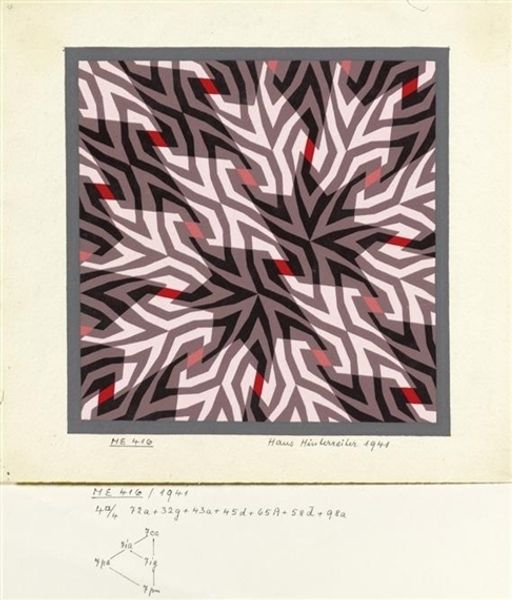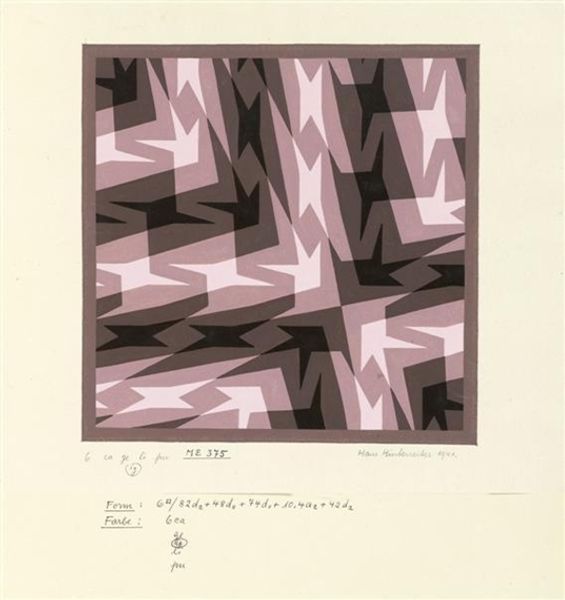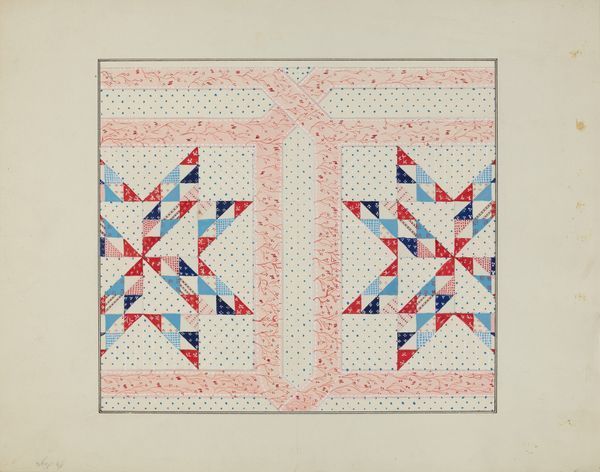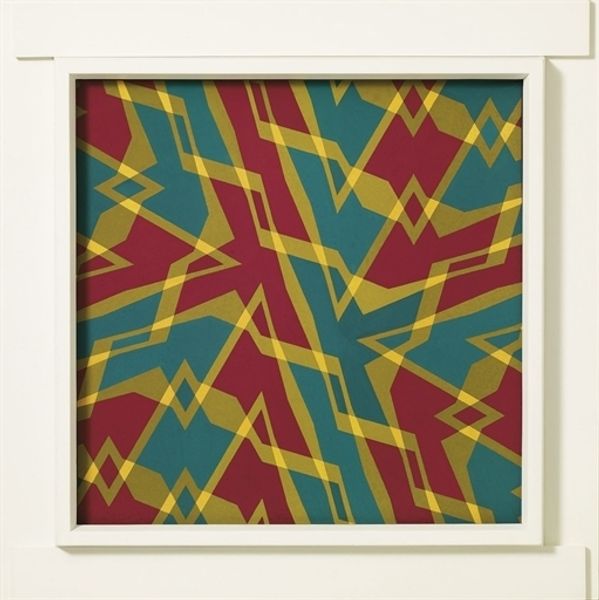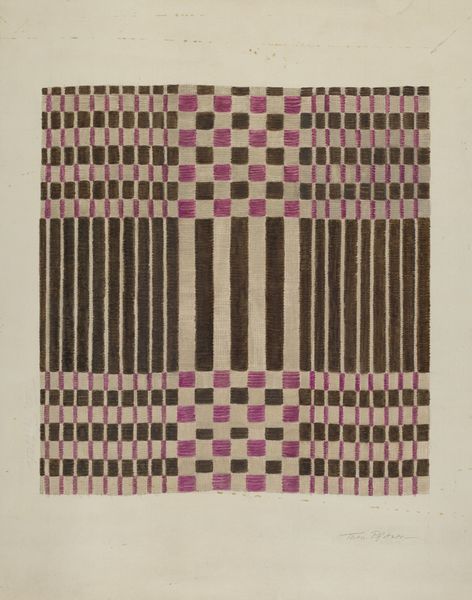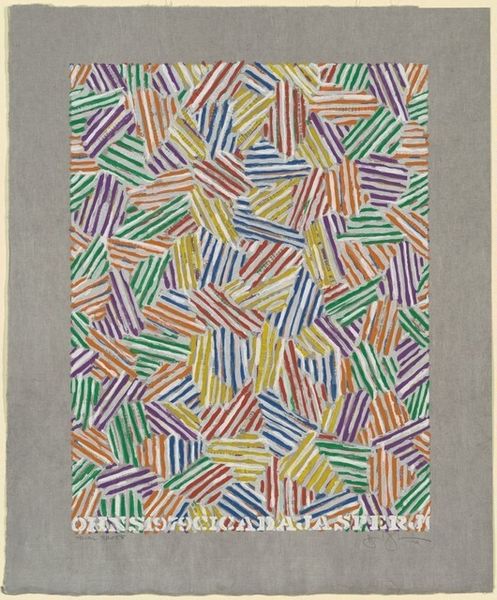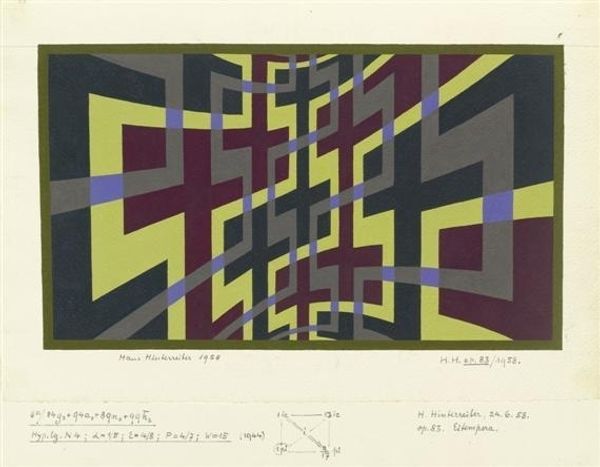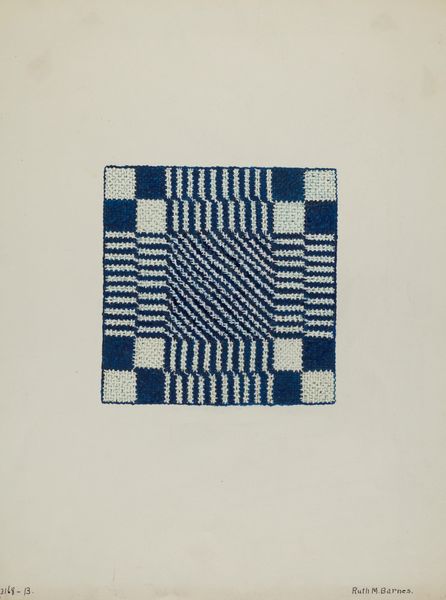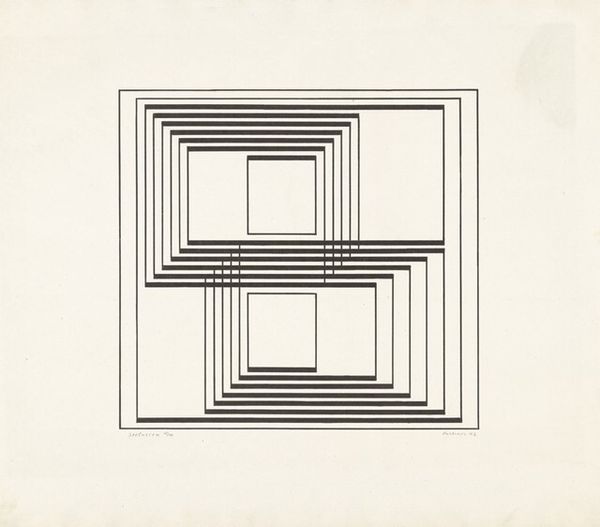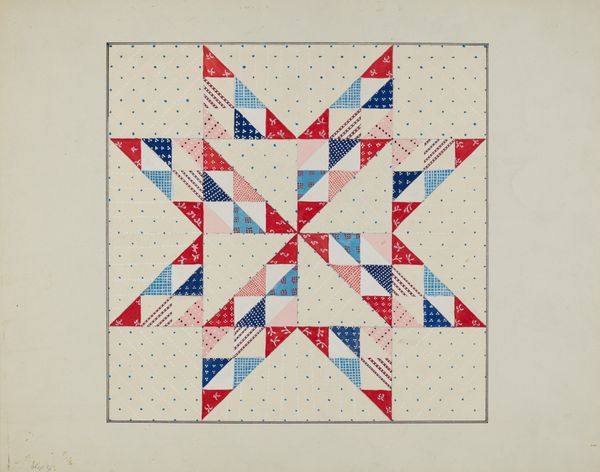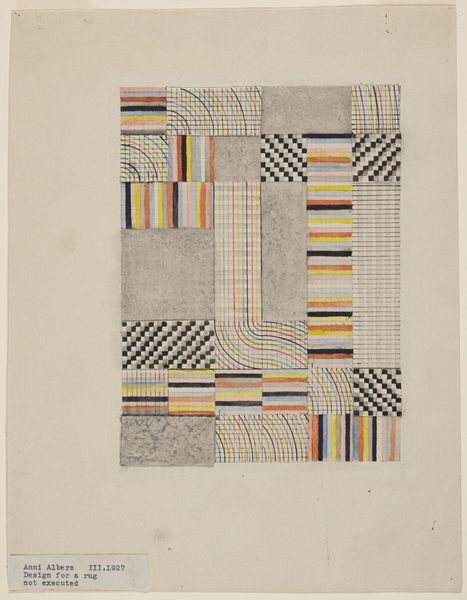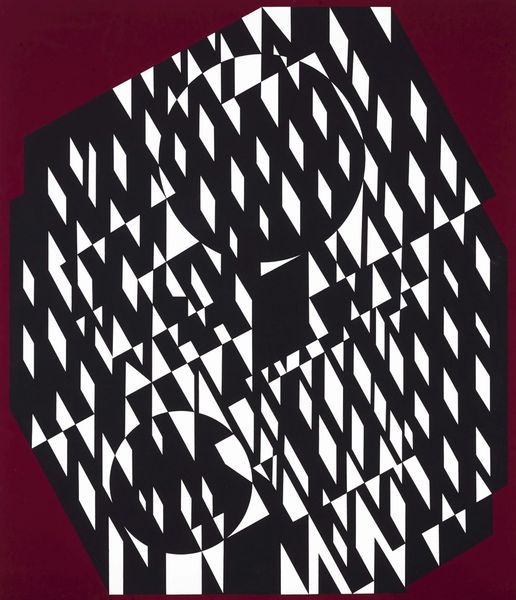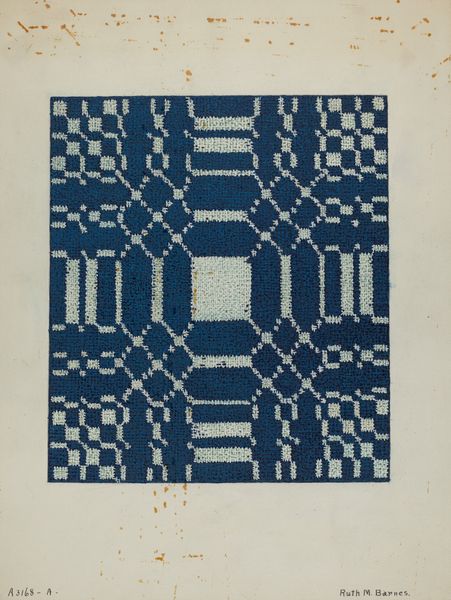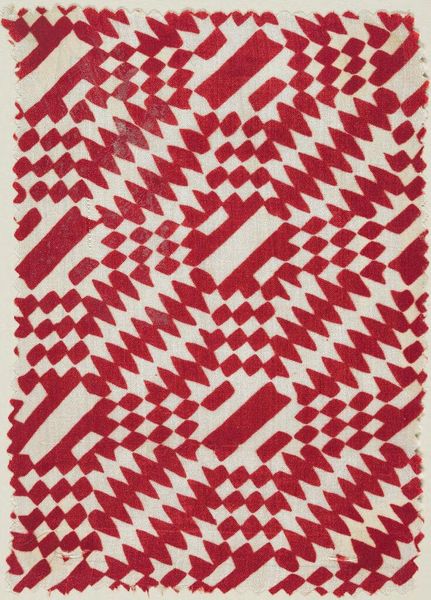
drawing, paper, ink
#
drawing
#
pattern
#
constructivism
#
paper
#
text
#
ink
#
pink
#
geometric
#
abstraction
#
line
Copyright: Hans Hinterreiter,Fair Use
Curator: Here we have Hans Hinterreiter’s “ME 368,” created in 1940. It’s a drawing rendered in ink on paper, featuring this fascinating geometric pattern. What are your immediate thoughts? Editor: It looks like shattered glass, but somehow ordered, like a carefully planned explosion. The shades of gray and pink are odd. The color palette is restrained, giving it a subdued yet disconcerting feeling. Curator: Disconcerting, that's interesting! Hinterreiter was deeply interested in mathematical relationships and used them to dictate his artistic process. He wasn't trying to mirror the external world, but rather create a self-contained system. He used math as a compass for exploring a new universe. Editor: Mathematical relationships, yes. I notice how each angled stripe interacts to build up the image. There's a sort of industrial precision—all made possible, though, by the artist's labor with ink on paper. You can see how the materials become an integral aspect of creating abstract relationships on a real, accessible piece of paper. Curator: Exactly. You also get a glimpse of Hinterreiter's process right on the paper itself; see the equations and diagrams beneath the main image? These notes and calculations were the tools used to unlock visual possibilities. It's like a peek behind the curtain of creation, don't you think? Editor: Very much. These add a fascinating dimension—the visual outcome from an almost purely formulaic input. The relationship reminds us that even in abstraction, there's a tangible origin rooted in the mundane work. In many ways, Hinterreiter makes these notes essential pieces of the work itself by presenting them. Curator: I see this piece, especially given its creation during the early years of World War II, as a quest for order in a world descending into chaos. I’ve been looking for something stable in our world. Editor: A fascinating interpretation. It certainly elevates the piece from mere geometric abstraction to a potential statement. Regardless of intention, understanding the method helps us see a depth and intention here.
Comments
No comments
Be the first to comment and join the conversation on the ultimate creative platform.
